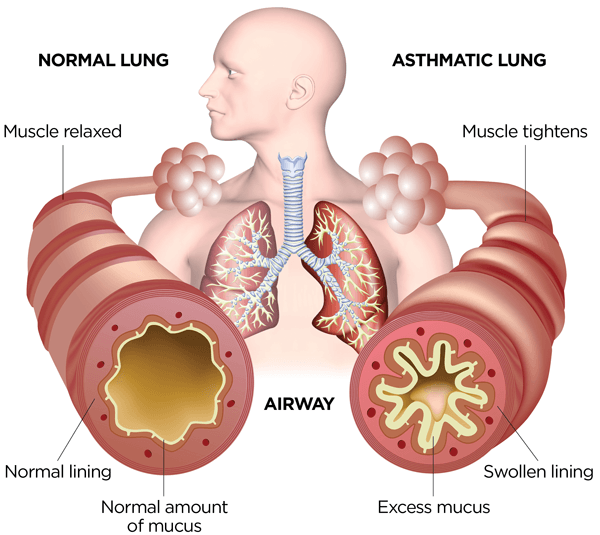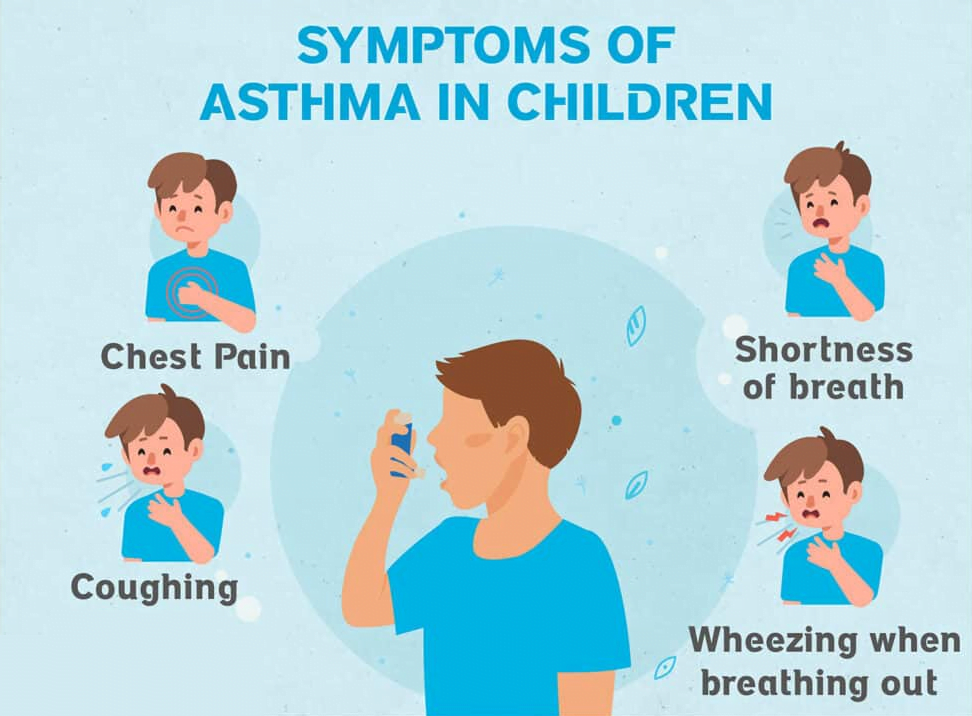What is asthma?
Asthma is a chronic condition characterised by inflammation of the airways. The airways (bronchi) are the tubes that carry air to the lungs.
When an asthma patient inhales an irritant from the environment, an exaggerated bronchial response is triggered by a contraction of the smooth muscle fibres of the airways (bronchospasm), which leads to a narrowing of the airway lumen. Inflammation of the bronchi is characterised by swelling and production of secretions that are thick and sticky, with the end result being a worsening of the narrowing of the bronchial lumen. This restricts the flow of air through the bronchi.
A schematic illustration of the mechanisms by which inflammation causes airway obstruction in patients with asthma is shown in the next figure.
Asthma patients have a genetic (hereditary) predisposition, but symptoms appear after exposure to certain triggers. Such factors are infections (especially viral ones), irritants in the environment (dust, pollens, animal dander, humidity, smoke, drugs, etc.) and exercise.





